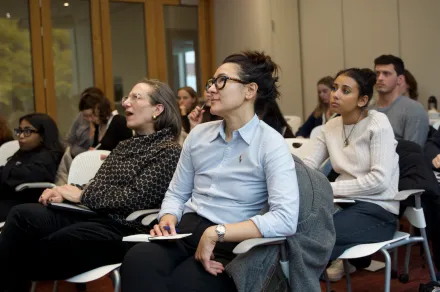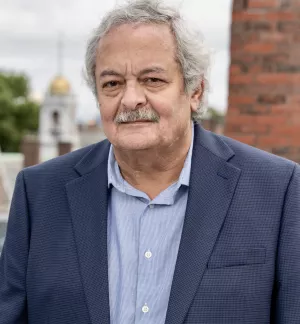The Struggle for Democracy in the Arab World
Dr. Youssef Chahed, former Prime Minister of Tunisia (2016-2020), and Mr. Hisham Kassem, former Egyptian publisher, will lead this five session study group exploring lessons learned from the development of democratic institutions in the Arab world. Particular attention will be paid to the experiences of Egypt, Iraq, and Tunisia.
The study group will offer a concrete and unique insider view of the MENA region's fight for democracy and economic development. Participants will hear from leaders from the MENA region on specific obstacles that they have encountered in their efforts to build democratic frameworks. The seminar will provide in-depth country case studies with an emphasis on the political and institutional factors that support or constrain the growth of democracy and representative governance in the region.
Format: Every session will include a lecture component, and an exchange of views on the topic under consideration, including with guest speakers with extensive experience working on issues of governance. Participants will be expected to attend all five sessions. They should come prepared to engage in deep discussion and contribute their own experiences in the Middle East. In all study group sessions, Chatham House rules will apply. Refreshments will be provided.
Schedule: The study group will consist of 5 sessions on Wednesday afternoons from 4:30 – 6:00pm.
Session 1: Wednesday, October 22: [led by Dr. Youssef Chahed] Tunisia’s Democracy: What went wrong?: The Arab Spring started in Tunisia when Mohammed Bouazizi, a street vendor, set himself on fire in Sidi Bouzid. This initiated a domino effect that overthrew autocratic governments across the Middle East and the Maghreb. For a decade, the Tunisian democracy showed remarkable resilience before waning. Why did a democracy that lacked prerequisites survive? Why did it collapse? What impact did President Bourguiba's legacy and Tunisia's moderate Islam have on the course of events? What effects did terrorism and political Islam have on the course of the nation? What role does the global community play?
Session 2: Wednesday, October 29: [guest speaker: Dr. David Patel] Building Democratic Institutions in Iraq: Twenty-two years after the United States invaded Iraq to alter its government, the nation is still plagued by major issues like political fragmentation, sectarian influence, corruption and governance issues. What explains the resilience of the political system, despite multiple shocks? What are the key aspects of Iraq's democracy? How does foreign interference shape Iraq’s political trajectory? What explains the resilience?
Session 3: Wednesday, November 5: [led by Mr. Hisham Kassem] Economic & Social Pressures in Egypt: When the January 2011 uprising ended the 30-year rule of Hosni Mubarak, Egypt had a GDP of $220 billion and one of the weakest economies in the region. How did the economy affect the path of the Arab Spring in Egypt? How did the elected government’s failure to address the economy lead to a relapse into military rule? Are reformist forces capable of transforming the economy to create the necessary platform for comprehensive political and social reform?
Session 4: Wednesday, November 12: [guest speaker: Dr. Ezzedine Fishere] Comparative Cases of Democratic experiences: What experiences were shared among Egypt, Iraq, and Tunisia in times of democratic transition or backsliding? How did they deal with common challenges such as terrorism, political Islam and foreign interference? What factors, from existing institutions and civil societies to the role of the military and demographic and sociological questions, set each country apart? How do we explain the different trajectories? What can be learned about the prospects for future democratization in the Arab world from the contrast between the different cases studied? Is there cause for hope?
Session 5: Wednesday, November 19: Is the Arab World a Hard Place for Democracy?: Democracy has expanded to diverse areas worldwide, including nations with difficult or dictatorial histories – sometimes called “hard places.” How does democracy function in “hard places”? Why are there no true Arab democracies? What lessons can we learn from democratic backsliding in the Middle East? What factors stabilize a democratic transition? Is economic prosperity the key to successful democratization? Are there other governance models for the region? What are the Arab world’s most important lessons for the theory of democratization?





